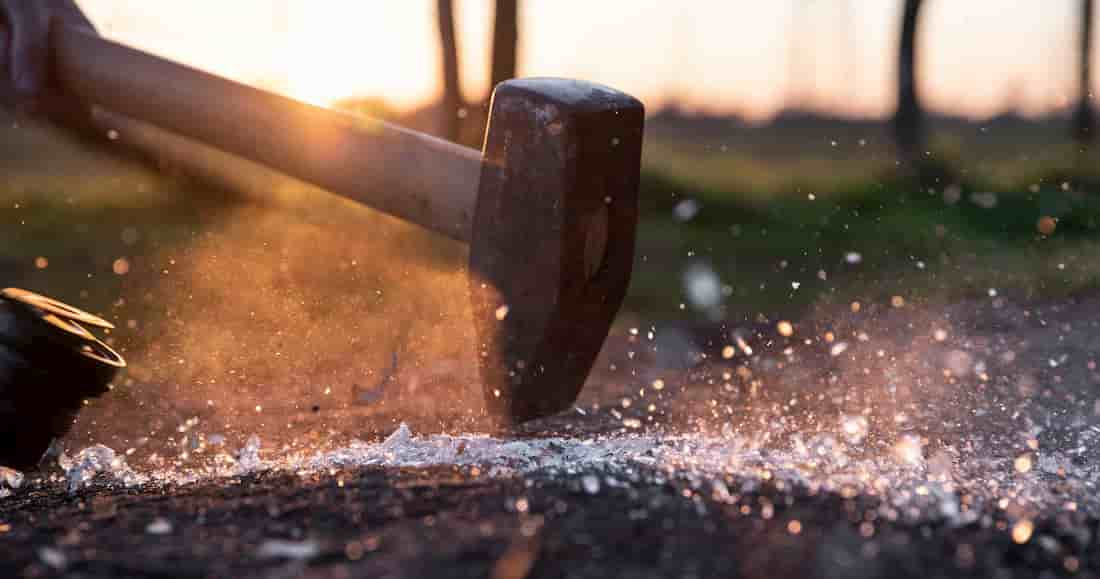

Water hardness is defined as the concentration of calcium and magnesium salts present in the water expressed in terms of calcium carbonate. In general, water from sedimentary rocks found in the south and east of the country tend towards high levels of hardness, whilst water from igneous rock found in the north and west of the country tends to be softer, but local sources of water may be either soft or hard across the whole country.
Hardness can be either temporary, caused by calcium bicarbonate which breaks down upon boiling, or permanent, caused by calcium and magnesium sulphates, chlorides and nitrates.
Hard water reacts with detergents such as soap to produce a "scum" of insoluble calcium salt, which reduce the effectiveness of washing, and contaminates clothing. Hardness in hot water systems causes insoluble carbonates and sulphates to coat heating elements in boilers and washing machines, and scale can build up in pipes and radiators to reduce flow and give poor heat transfer. This is also noticeable in kettles, steam irons, coffee machines and shower heads.
| Total Disolved Solids (TDS) | Conductivity (ppb) | Degrees (french) | Hardness |
|---|---|---|---|
| 0-70 | 0-140 | 0-7 | Very Soft |
| 70-150 | 140-300 | 7-15 | Soft |
| 150-250 | 300-500 | 15-25 | Slightly Hard |
| 250-320 | 500-640 | 25-32 | Moderately Hard |
| 320-420 | 640-840 | 32-42 | Hard |
| Above 420 | Above 840 | Above 42 | Very Hard |
Water can be "softened" by passage through an ion exchange column (water softener) by exchanging the insoluble calcium ions in the water with sodium ions, giving a soluble salt which does not precipitate out, thus eliminating scale and scum problems. The ion exchange is often regenerated by back flushing the spent column with a sodium chloride solution to displace the bound calcium or heavy metal ions.
It is interesting that water hardness affects the taste of tea, and the amount of tannin extracted, and is also responsible for affecting the brewing of beer. Ardent home brewers may use "Burtonising salts" (which contain calcium sulphate) to copy the brewing water used at Burton-on-Trent home of Burton Ales.
If your water is soft you may wish to consider testing your supply for heavy metals and arsenic, whilst very hard readings may cause you to consider softening your supply for hot beverages and for washing or heating.
In general it is healthier to drink hard water containing calcium ions as calcium is needed to form bones, whereas soft water is more likely to contain heavy metals, but softened water is perfectly acceptable to drink.
The hardness of your drinking water can be detected by the following tests.
